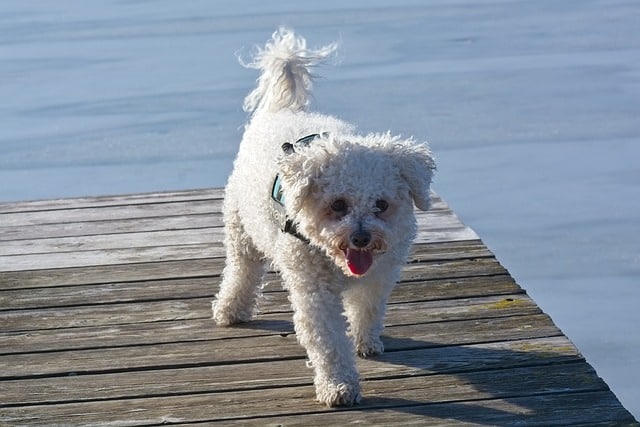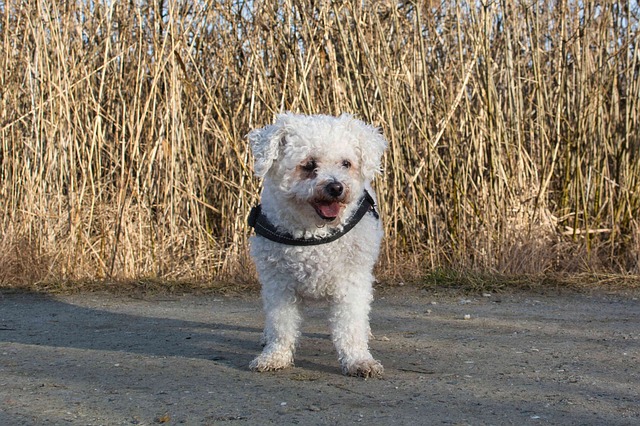Bichon Frises are among the most charming and lovable dog breeds. With their fluffy white coats and playful personalities, they’ve captured the hearts of many dog owners. However, like most breeds, there are some common misconceptions that surround them. Whether you’re a current Bichon parent or considering adopting one, it’s important to separate fact from fiction. Here are five myths about Bichon Frises you should stop believing.
1. Myth: Bichon Frises Don’t Require Much Grooming
It’s easy to look at the adorable cloud-like appearance of a Bichon Frise and assume that they’re low maintenance, but this is far from the truth. A common myth about Bichon Frises is that they don’t require much grooming because of their small size and relatively hypoallergenic reputation. However, their curly, cottony coats need consistent attention to stay healthy and mat-free.
The Truth: Regular Grooming is Essential
Bichon Frises have a double coat—soft undercoat and a coarser outer coat—which can easily tangle and mat if not groomed regularly. Their hair continuously grows, similar to human hair, meaning it requires regular trimming and care. If neglected, their coat can become uncomfortable for the dog, leading to skin issues. Most experts recommend brushing your Bichon’s coat daily to avoid tangles and mats. Additionally, professional grooming should be scheduled every 4-6 weeks to keep their coat in optimal shape.
Regular baths are also crucial, as their white coats can easily stain, especially around the face. Keeping their eyes and ears clean is another important aspect of Bichon grooming to prevent infections.
2. Myth: Bichon Frises Are Yappy and Annoying
Some believe that because Bichon Frises are small dogs, they are prone to excessive barking and being generally noisy. This reputation is often associated with small breeds in general, which can deter potential dog owners who live in apartments or have neighbors nearby. While Bichons are vocal, labeling them as “yappy” is an unfair generalization.
The Truth: Proper Training Curbs Barking
While Bichon Frises are known to be alert dogs, they are not inherently yappy. They may bark to get your attention or alert you to visitors, but excessive barking usually occurs when a Bichon is bored, anxious, or inadequately trained. With consistent training and socialization from a young age, Bichon Frises can be well-behaved and learn when it’s appropriate to bark. They thrive on human companionship and, when their mental and physical stimulation needs are met, they tend to be calm and content.
Like any breed, understanding your dog’s needs and providing adequate enrichment can prevent undesirable behavior like incessant barking.
3. Myth: Bichon Frises Are Lazy Lap Dogs
It’s easy to assume that small, fluffy dogs like Bichon Frises are content with lying around all day on your lap. Many people think that their only exercise requirement is a short walk and that they’re perfectly happy being lazy companions. However, this myth couldn’t be further from the truth.
The Truth: Bichons Are Playful and Energetic
Bichon Frises are surprisingly energetic for their size. They are active, playful dogs that require regular exercise to stay healthy and happy. A Bichon’s ideal day includes playtime, mental stimulation, and several short walks. Their lively personalities make them perfect for games like fetch or hide-and-seek, and they thrive in environments where they can engage in interactive activities.
Without proper exercise, Bichons can become bored, which may lead to destructive behavior. Keeping a Bichon mentally and physically active is essential for their well-being. So, while they love to snuggle, don’t expect them to be couch potatoes!
4. Myth: Bichon Frises Don’t Shed
One of the most persistent myths about Bichon Frises is that they are completely non-shedding dogs. Many prospective owners are drawn to the breed because of this misconception, particularly those with allergies. While Bichons are often described as hypoallergenic, the idea that they don’t shed at all is inaccurate.
The Truth: Bichon Frises Shed Minimally, But They Still Shed
Bichon Frises do shed, though it’s minimal compared to other breeds. Their unique coat traps most of the shed hair, which is why it often appears as though they don’t shed at all. This can make them an excellent choice for allergy sufferers, but it doesn’t mean they are completely hypoallergenic or that no hair will ever be found in your home.
The fact that their hair grows continuously instead of shedding heavily does reduce allergens, but regular grooming is still necessary to maintain their coat and overall health. Frequent brushing will help to capture loose hair before it mats or spreads around the house.
5. Myth: Bichon Frises Are Too Fragile for Families with Kids
Because Bichon Frises are small and delicate-looking, some people believe they are not suitable for families with young children. This myth often stems from concerns about small dogs being easily injured or unable to handle the playful roughhousing that can come with children.
The Truth: Bichons Are Tougher Than They Look
While Bichon Frises are small dogs, they are far from fragile. In fact, they are sturdy and resilient, making them excellent companions for families, including those with children. Their playful, affectionate nature aligns well with the energy of kids, and they typically enjoy being involved in family activities.
However, it’s important to teach children how to properly interact with a dog of any size. Rough play or mishandling can lead to accidents, so supervision and teaching children how to be gentle are key to ensuring a happy relationship between a Bichon and a family. When treated with care, Bichons can thrive in a household full of active children, proving that they’re much tougher than their fluffy exterior suggests.
Conclusion: Don’t Let Myths Prevent You From Considering a Bichon Frise
Bichon Frises are delightful dogs with personalities that far exceed their size. Their intelligence, playfulness, and affectionate nature make them wonderful pets for a variety of households. However, it’s important to understand their grooming needs, activity levels, and temperament before bringing one home. By debunking these common myths, you can make a more informed decision about whether a Bichon Frise is the right fit for your family.
If you’re prepared to provide them with the care, attention, and training they need, a Bichon Frise can be an incredible lifelong companion. Don’t let misconceptions deter you from enjoying the unique joy that comes with owning this charming breed.


 Toledo, United States.
Toledo, United States.